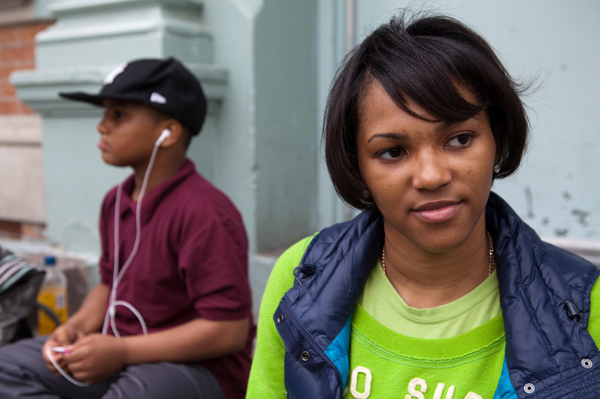
Photo by: Marc Fader
Beverly Davis has a full-time job, a family she supports and a college course to complete. She has plans to become a police officer. Public benefits are essential to her move from low-wage work to economic independence.
More Americans are poor than ever before, and the national poverty rate is at its highest level since 1994. Meanwhile, one in five New Yorkers lives in poverty. But poverty is absent from our civic discourse. Everyone is tired of talking about poverty, it seems, except poor people. Perhaps that’s because the rhetoric around the topic has rarely resembled reality. The latest issue of City Limits explores that lives of four low-income New Yorkers, including Beverly Davis.
Beverly Davis has always worked. From when she was 15 years old, she says, she worked part time at a Dr. Jay’s clothing store in the Bronx, while finishing high school and raising two children. In 2009, after six years on the job, Davis was told by a new manager that she was being let go. “I wasn’t upset, but I understood how the business went. So I wasn’t going to let that stop me. I was still on public assistance, receiving my portion that they gave me, but I wasn’t comfortable with it. I was only doing that to make ends meet and to feed my children.”
Instead, she applied for a training program run by Cooperative Home Care Associates, a worker-owned and cooperatively run home care agency in the Bronx. “It was public assistance ready,” she says, meaning that HRA works with the employer to ensure that the job counts toward her mandated work hours. That, she says, “made it a plus for me.”
But more than that, Davis sees it as the perfect stepping-stone to a better life. She’s not only raising two children and working 36 hours a week but also studying criminal justice at Monroe College. With her home care job and public benefits tiding her over until then, she’s con








